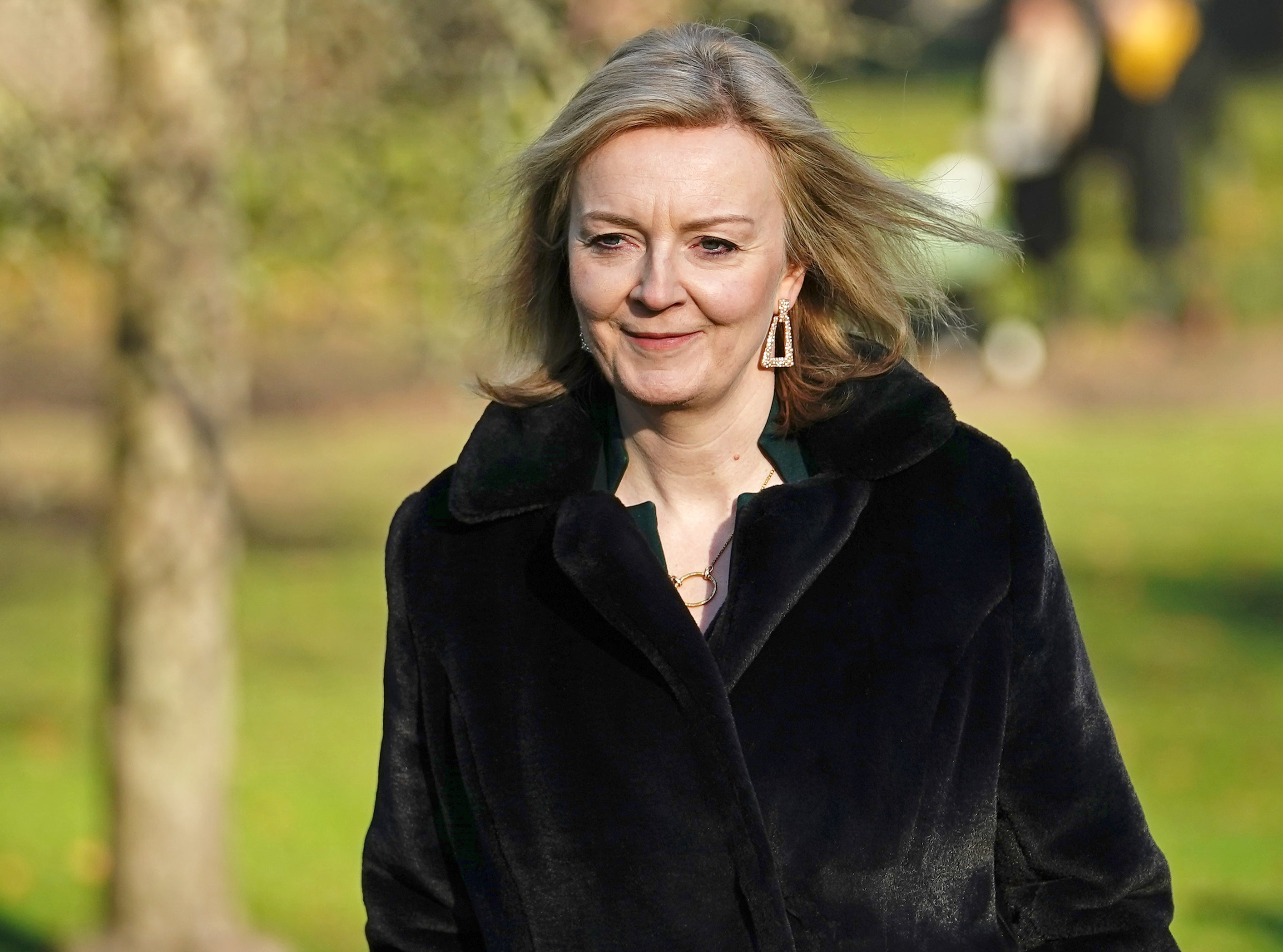Russia could drag out Ukraine crisis for months, warns Truss
Britain’s military intelligence chief said Moscow continues to move troops to the border zone, despite claims is is pulling back.

Your support helps us to tell the story
From reproductive rights to climate change to Big Tech, The Independent is on the ground when the story is developing. Whether it's investigating the financials of Elon Musk's pro-Trump PAC or producing our latest documentary, 'The A Word', which shines a light on the American women fighting for reproductive rights, we know how important it is to parse out the facts from the messaging.
At such a critical moment in US history, we need reporters on the ground. Your donation allows us to keep sending journalists to speak to both sides of the story.
The Independent is trusted by Americans across the entire political spectrum. And unlike many other quality news outlets, we choose not to lock Americans out of our reporting and analysis with paywalls. We believe quality journalism should be available to everyone, paid for by those who can afford it.
Your support makes all the difference.Russia could drag out the crisis over Ukraine for weeks – or even months – in an attempt to undermine Western unity, Foreign Secretary Liz Truss has warned.
Ms Truss said it was essential not to be “lulled into a false sense of security” by Moscow’s claims it was beginning draw back its forces from the borders of its southern neighbour.
Her warning came after Britain’s head of military intelligence said that contrary to the assertions of the Kremlin, Russia was actually continuing to move forces into the border zone.
Lieutenant General Sir Jim Hockenhull, the Chief of Defence Intelligence, said there have been sightings of additional armoured vehicles, helicopters and a field hospital in the area.
In a statement issued late on Wednesday, he said: “Contrary to their claims, Russia continues to build up military capabilities near Ukraine.
“This includes sightings of additional armoured vehicles, helicopters and a field hospital moving towards Ukraine’s borders. Russia has the military mass in place to conduct an invasion of Ukraine.”
Writing in The Daily Telegraph, Ms Truss, who will this week visit Ukraine and Poland in a fresh show of support for allies, said there was no evidence Moscow was ready to pull back.
“We must not be lulled into a false sense of security by Russia claiming that some troops are returning to their barracks, while in fact the Russian military build-up shows no signs of slowing,” she said.
“We must have no illusions that Russia could drag this out much longer in a brazen ploy to spend weeks more – if not months – subverting Ukraine and challenging Western unity. This is a test of our mettle.”
Moscow has repeatedly denied that it has any intention of attacking Ukraine, despite massing an estimated 130,000 troops along the border.
Russia’s deputy ambassador to the United Nations Dmitry Polyanskiy again dismissed the claims as “fantasies” by Western politicians.
“This is a very ridiculous situation, there has been hysteria, even hype, fanned for several weeks by our Western colleagues,” he told ITV’s Peston programme.
“They convinced each other and the whole world that Russia was about to invade, they were even naming concrete dates. So it happened in their minds, in their heads.”
In a speech in Kyiv, the Foreign Secretary will say the “path of diplomacy” remains open if Moscow really does want a peaceful resolute to the crisis .
“We are ready to talk. But we are very clear – if they decide to continue down the path of aggression, there will be massive consequences bringing Russia severe economic costs and pariah status,” she will say.
Following her visits to Ukraine and Poland, Ms Truss will travel on to attend the Munich Security Conference with other Nato foreign and defence ministers.
On Wednesday, alliance defence ministers meeting in Brussels agreed to start drawing up plans for a series of new battlegroups in central, eastern and south-eastern Europe.
Secretary general Jens Stoltenberg said it was to counter the threat from Moscow, which he described as “the new normal”.
The warning came after the Russian defence ministry issued video footage which it said showed armoured vehicles moving across a bridge away from Crimea, the peninsula Moscow annexed from Ukraine in 2014.
While Western allies have made clear they will not intervene militarily in Ukraine – which is not a Nato member – they are looking to shore up their defences elsewhere in eastern Europe.
Britain has already said it is doubling the number of troops in Estonia, with around 850 members The Royal Welsh battlegroup heading from Sennelager in Germany and bases in Europe for the Baltic state, while 350 Royal Marine commandos are being despatched to Poland.
Four additional RAF Typhoon jets are heading to Cyprus to join Nato patrols over eastern Europe while offshore patrol vessel HMS Trent will shortly be joined in the eastern Mediterranean by HMS Diamond, a Type 45 destroyer.
Boris Johnson discussed the crisis in a call with United Nations secretary-general Antonio Guterres, in which they agreed an invasion of Ukraine would have “catastrophic and far-reaching consequences”.
“They agreed to continue working closely together to pursue an urgent diplomatic resolution and avert a disastrous military escalation and humanitarian crisis,” A No 10 spokesman said.
They also agreed on the importance of implementing the Minsk agreements which were supposed to end the fighting between Ukrainian forces and Russian-backed separatists in the east of the country, but remain deeply unpopular in Ukraine.